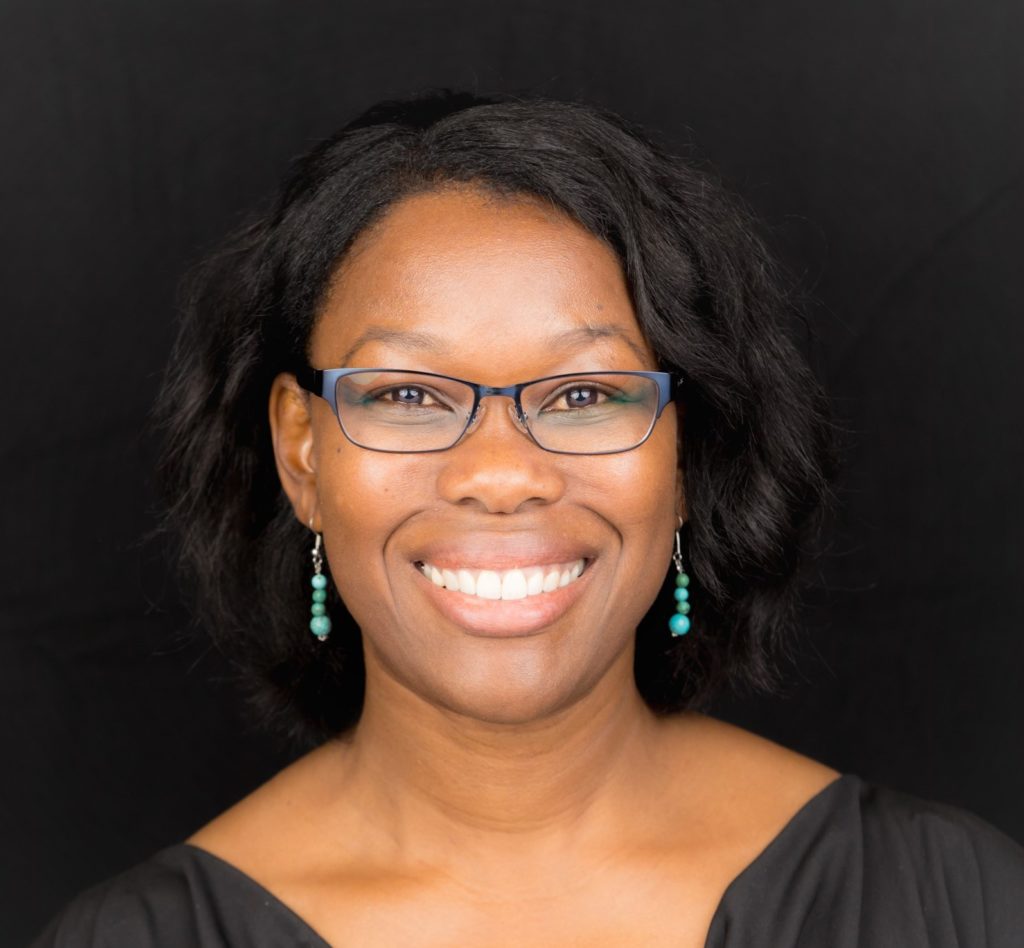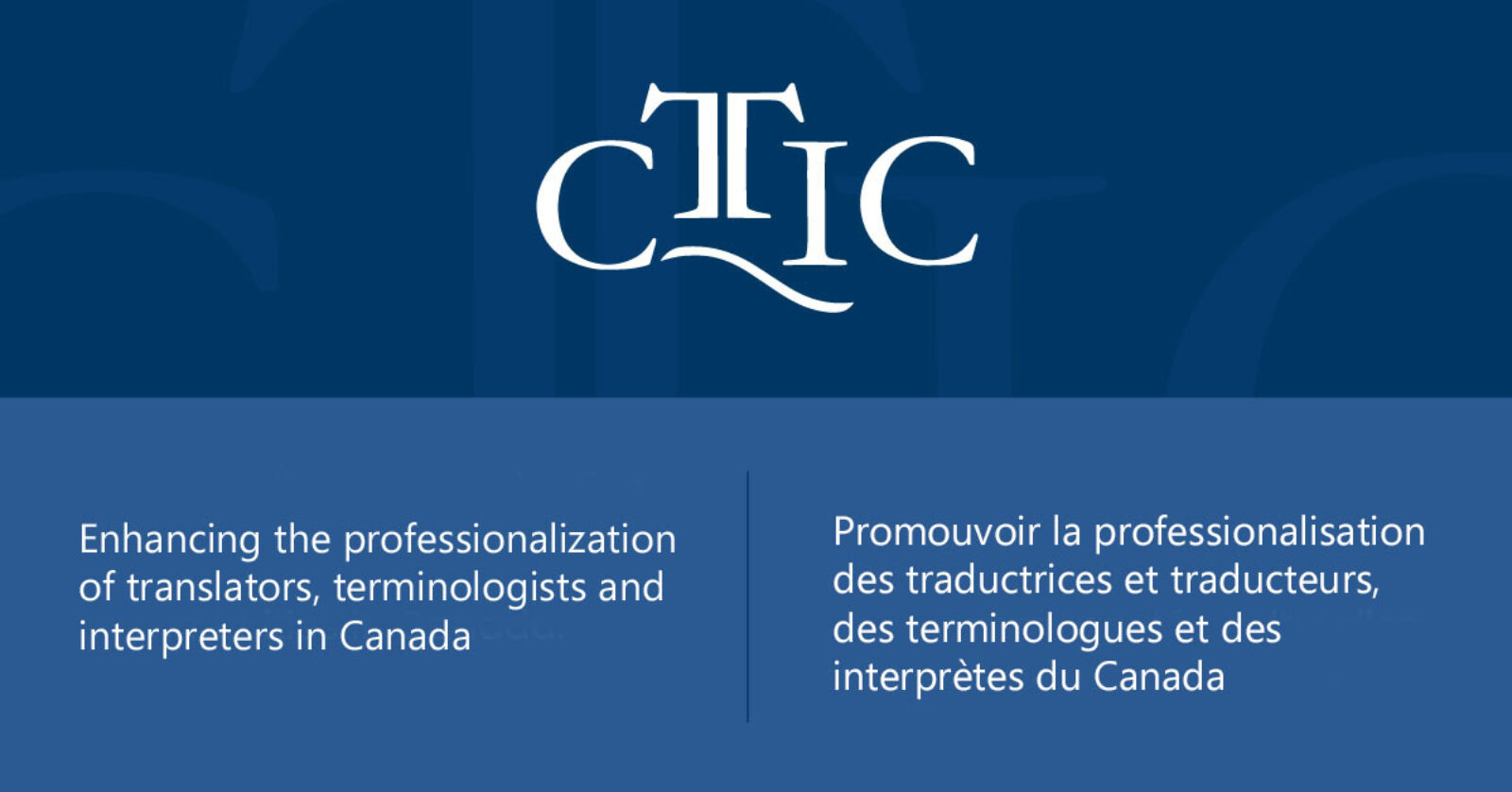Interviewed by Angela Fairbank, CTTIC board member-at-large, November 28, 2022.

Translator, Terminologist, Interpreter – which of these three professions do you identify with?
I work as a Bilingual Editor, a Certified Translator and a Certified Community Interpreter. Every week, my project calendar includes all three professions so it keeps things interesting!
Please provide a brief synopsis of your education – including language education – and background related to how you came to be a Translator/Interpreter/Terminologist, such as immersion in foreign countries and culture, university education, mentorship/menteeship, internship, etc.
I became a translator through studying Spanish literature, in-country immersion, and saying “yes” to opportunities as they arose. I caught the language bug late, when I studied Political Science and Spanish at Brock University in St. Catharines, Ontario. I wanted to work with immigrants and refugees. Although we didn’t have a formal translation program, I took every course they offered in Spanish literature, translation and stylistics, and linguistics.
During my third year, I studied abroad in Monterrey, Mexico, where I worked on losing my accent and enjoying the vibrant culture. After graduation, I lived for a couple of years in Southern California, where I was exposed to accents from around Latin America, and I moved to Mexico City in 2001. I did some in-house translation and interpretation for a non-profit there, and then took some time to start a family and complete a Master’s in Political Science, focusing on the role of language in immigration settlement. In all, I lived in Mexico for about 14 years.
In March of 2007, a friend connected me to a translation agency. I took a test and started working with them. They mentored me for about two years, providing valuable feedback, and I worked with them for 10 years. I’m still in touch with the owner. My first project was a one-page restaurant menu, which I translated in a Starbucks on a borrowed laptop.
How long have you been working in your chosen profession? Do you tend to specialize and if so in which domains?
I have been a professional translator since 2007. As a translator, I specialize in official documents, sustainability reports, and audiovisual translation. While I do some business and legal interpretation, I work mainly at medical appointments. And as an editor, I revise and localize legal and pharmaceutical documents. I also provide academic copy editing for researchers who need to publish in English-language journals.
Are you currently working in-house or as a freelancer? If you have had experience in both types of employment, which do you prefer?
Freelancing, hands down! I can choose my projects and my workload. It has given me the flexibility to be at home with my kids while doing interesting and meaningful work. I can travel and work from anywhere with an Internet connection.
Where do you currently exercise your profession?
I moved to Halifax, Nova Scotia, in 2016. Before that, I lived in San Luis Potosí, Mexico.
Are you certified in your profession? If so, by which certification organization(s) and for how long have you been certified now? If you are certified, once you became certified, did you notice your income increase slightly, moderately or substantially?
Yes, of course! I joined the Association of Translators and Interpreters of Nova Scotia (ATINS) in 2016, and passed the CTTIC Spanish to English certification exam in 2017. I had 10 years of experience at that point, but I still took a legal translation course a few months before the exam. I also participated in an exam-prep workshop to practice translating within a time limit, on paper, with paper dictionaries.
My income from Canadian sources increased after I became certified because I could start translating official documents and I began receiving local referrals. In 2019, I also passed the American Translators Association certification exam. That opened even more doors and led to new income streams, including my audiovisual work.
This year, I passed the CTTIC community interpreter exam for Spanish<>English. Once I have accumulated enough hours, I plan to challenge the medical interpreter exam. I haven’t noticed increased income from becoming a certified interpreter. So far, I’ve passed all of my certification exams at the first attempt!
Do you offer other language-related services for your clients other than translation?
In addition to my academic editing work, I also provide machine translation post-editing (MTPE) services, and I revise work done by junior translators. Many of my colleagues find this type of work tedious, but as a word nerd, I actually really enjoy it!
My English-language work is shifting into the accessibility sphere for the deaf and hard of hearing. During lockdown, I completed a certificate program in Interlingual Respeaking through Universidade de Vigo, in Spain. For interlingual (Spanish to English), I use simultaneous interpreting with speech-to-text software to produce live subtitles. For intralingual (English only), it’s similar to shadowing. In both cases, I also need to dictate punctuation and subtitle line breaks. I find the cognitive load really high, so I don’t advertise the service, but it has led to some remote conference interpreting work, and I also use the technique for transcription. Working with Spanish and English media, I also produce captions for e-learning videos and subtitles for the deaf and hard of hearing (SDH).
What have been some of the highlights of your career so far?
I’ve come full circle. Through my certified translation work, I can help immigrants achieve their personal and professional goals. And as a certified interpreter, I help ensure that refugees have full access to the services and healthcare they need, and that they can give their informed consent.
As an audiovisual translator, I’ve worked on nine TV shows so far, and my translations have appeared on major streaming services. It’s fun to rewatch some of them with my family. Last week, I subtitled a documentary for UNESCO.
I’m also starting to mentor new translators, and am developing a course to help them get started in the profession. I spoke recently to a group of Spanish students at UPEI (University of Prince Edward Island) to give them an overview of the profession. As students in languages of lesser diffusion, they need to know that working in translation and/or interpretation is a fascinating and viable option.
I once spent a week in a wetsuit, interpreting for a helicopter crew as they practised underwater escape training. If my aircraft ever goes down, I know how to assume the crash position, pop out the window and swim up towards the light in two languages!
Have there been any particular challenges in your profession that you would like to share with our readers?
There aren’t as many training opportunities in Canada for non-official languages, so I’ve had to look to the USA or Europe for my continuing education.
What advice do you have for colleagues who are just starting – or thinking of starting – in the profession today?
Attend the American Translators Association conference at least once. Join a professional association and ask for a mentor. Get certified as soon as possible. Take courses in business planning and financial management. Say “yes” to trying new things, because they can lead to new ways of helping people communicate. Invest in your own professional development by taking at least one or two courses a year.
You have been volunteering on CTTIC’s Board for a number of years now and this is your second year as our Secretary. What made you decide to join the board? Also please tell us about some of the activities you have been involved in.
I have been serving on the Board of Directors of ATINS since 2016, and am currently its Vice President. I was sent as a representative to the CTTIC AGM in 2018 and I joined that Board as a Member at Large. My role was to help strengthen partnerships and connections between CTTIC and other language organizations, including ATA, Magistrad, and Editors Canada. Through those connections, affiliate members of CTTIC were able to access valuable training courses with Magistrad and attend the Editors Canada conferences through our Memorandum of Understanding.
I currently serve as Secretary on the CTTIC board, where I strive to keep clear and timely records of the spirited discussions that shape the certification landscape. Recently, I helped organize the 2022 CTTIC AGM in Halifax. It was great to welcome the Council members to the east coast!
Are there any particular events/benefits/strategies/changes you’d like to see the CTTIC board adopt during the 2022-2023 season?
I would love to see a Canada-wide conference for translators and interpreters, and more language-neutral training opportunities. I also believe that our associations need to nurture relationships with working but non-certified interpreters. We all have the same goal of increasing accessibility through high-quality communication.
Is there anything I missed that you would like to add?
It is possible (and profitable) to become a certified translator and/or a certified interpreter without first obtaining a degree in translation or interpretation. But for those of us who take this path, we need to work harder to find good mentors, be committed to ongoing professional development, and seek certification.
